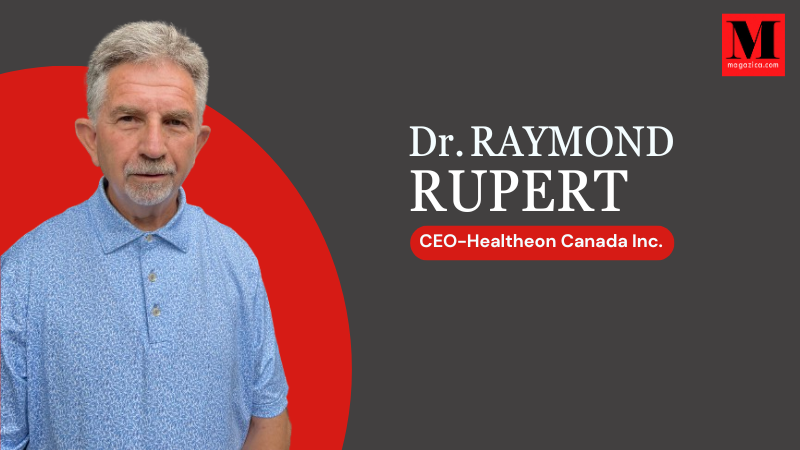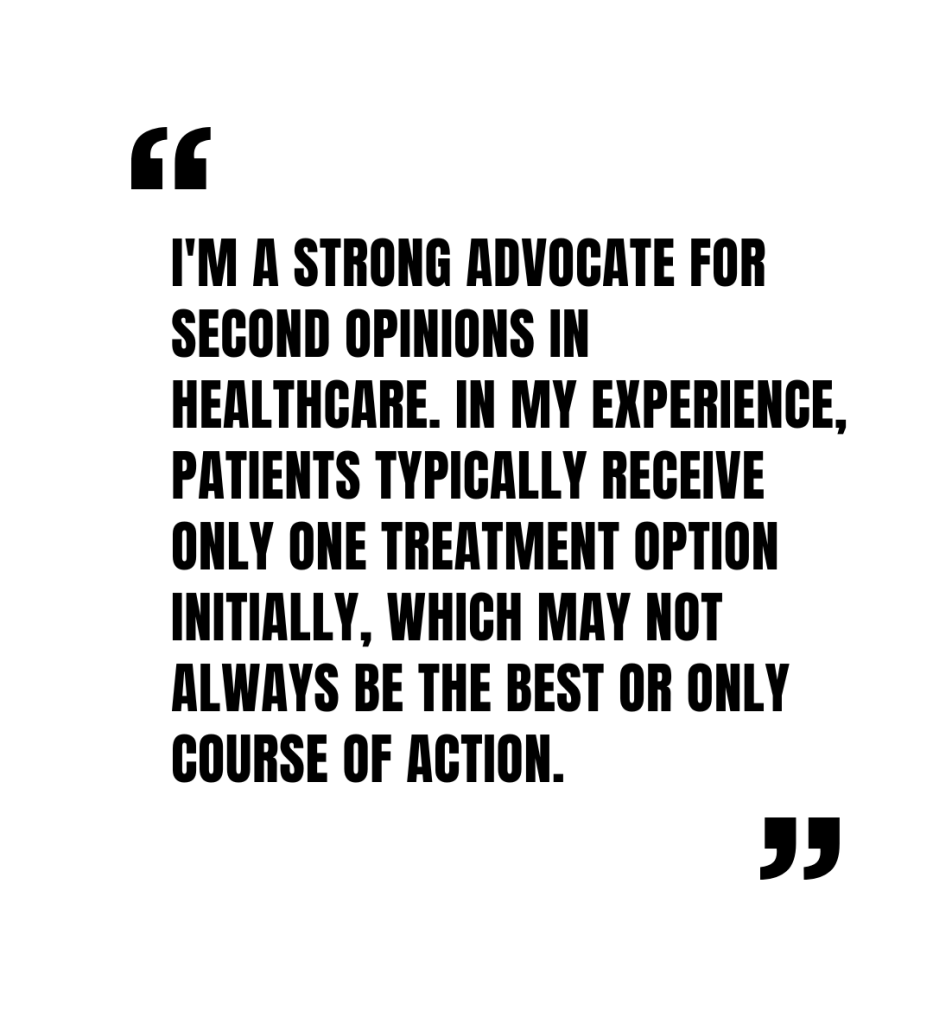Empower Yourself: Dr. Raymond Rupert on Patient Advocacy and Better Healthcare through Actionable Advice
- Home
- Empower Yourself: Dr. Raymond Rupert on Patient Advocacy and Better Healthcare through Actionable Advice

Empower Yourself: Dr. Raymond Rupert on Patient Advocacy and Better Healthcare through Actionable Advice
Magazica:With over three decades of experience, you’ve seen significant changes in healthcare. Can you share some insights on how patient advocacy has evolved and why it’s more important than ever?
Dr. Raymond Rupert: In my experience, patient advocacy has become increasingly crucial in today’s healthcare landscape. Our Canadian healthcare system is often siloed and lacks coordination. This creates significant challenges for patients, especially those with complex medical issues.
As our systems become overloaded, there’s a risk that providers may become less responsive to individual patient needs. Let me share an example that illustrates why advocacy is so vital.
Recently, I worked with Helena, a 79-year-old patient with multiple health issues who was seeking Medical Assistance in Dying (MAID). Despite initial resistance from hospital staff, our advocacy efforts, which involved engaging hospital administration, ultimately ensured that Helena’s wishes were respected. This case shows how advocacy can be crucial in ensuring patients receive the care they desire and deserve, even in complex or sensitive situations.
It’s more important than ever because our healthcare systems are under increasing strain, and without strong advocacy, patients’ voices and needs can sometimes get lost in the process.
Magazica: Many readers navigate complex health situations. What are some key things individuals can do to be proactive advocates for their own healthcare?
Dr. Raymond Rupert: First, educate yourself about the treatments available for your condition. Don’t hesitate to talk to other patients who are on similar health journeys; their insights can be invaluable.
Don’t rely too heavily on Google for medical information. Online sources can be overwhelming, irrelevant, or inaccurate. It’s important to partner with your family doctor or nurse practitioner. They can offer you the most relevant and practical information, providing reality-based advice to help you navigate the complexities of the healthcare system.

Magazica: Second opinions are often mentioned, but not everyone understands their value. Can you explain when seeking a second opinion might be beneficial?
Dr. Raymond Rupert: I’m a strong advocate for second opinions in healthcare.
In my experience, patients typically receive only one treatment option initially, which may not always be the best or only course of action. Get 2-4 second opinions to challenge the original decision and explore alternative approaches. I understand that patients often feel worried that they might upset or confuse their doctors. But the potential benefits of discovering alternative treatment options far outweigh these concerns. By getting multiple opinions, you can make more informed decisions about your care and potentially uncover treatment options you weren’t initially aware of.
Magazica: With so much medical information online, it can be overwhelming. How can readers navigate this and find trustworthy sources for health information?
Dr. Raymond Rupert: Again, partnering closely with your family doctor and nurse practitioners is the best way to go. These healthcare professionals are best positioned to provide the most relevant, practical, and trustworthy information specific to your situation. Your primary care providers will have access to reliable resources and interpret medical information in the context of your individual health needs.
Magazica: For someone facing a complex medical situation, what are some initial steps they can take to navigate the healthcare system effectively?
Dr. Raymond Rupert: Having an advocate is crucial when navigating complex medical situations. This advocate could be a family member, your family doctor, or another individual who understands the healthcare system.
Magazica: Many readers might struggle with communication with healthcare providers. Can you share some tips for effective communication to ensure they are heard and understood?
Dr. Raymond Rupert: Persistence is key, especially in complex situations. Don’t hesitate to escalate your concerns to the appropriate decision-makers when necessary. Sometimes, this might mean reaching out to hospital administration or other key stakeholders to ensure your needs are met.
Choose the right communication channel and style; doctors work really well with secure messaging systems where communications are brief and concise, if available with your doctor. Remember, you have the right to ask questions and seek clarification until you fully understand your situation and options.
Magazica: Financial considerations often impact healthcare decisions. How can patients have open conversations with doctors about costs and explore potential solutions?
Dr. Raymond Rupert: I always encourage patients to be open about their financial concerns with their healthcare providers. There are often options available that you might not be aware of. For instance, there are private options for certain procedures in Canada, and some employers may cover private healthcare options, such as hip replacements. Don’t be afraid to ask your doctor about all available options, including both public and private care alternatives, where applicable.
If your doctor isn’t able to discuss financial aspects, ask to speak with a patient advocate or financial counsellor at the healthcare facility. Remember, a good healthcare team should be able to help you find the best solution for your health and your circumstances.
Magazica: Beyond medical care, what are some lifestyle habits or practices that can contribute to a person’s overall well-being?
Dr. Raymond Rupert: Focus on preventing chronic diseases through proactive health measures. This includes participating in wellness programs designed to extend your health and longevity.
I can’t stress enough the importance of avoiding social isolation and maintaining your connections with family and friends. Stay physically active, and of course, maintain a healthy diet. These might seem like simple recommendations, but they form the foundation of good health.
Magazica: Many readers might not have access to concierge-level care. Can you offer alternative strategies for those seeking a more personalized healthcare experience?
Dr. Raymond Rupert: Looking into care from nurse practitioners and nurse practitioner-led clinics as an alternative to traditional doctor-centric or concierge care models. Nurse practitioners often provide a more humanistic approach to healthcare, offering strong and supportive relationships with patients. They typically have more time to spend with each patient and take a more holistic view of your health. This creates a more personalized patient experience compared to traditional physician-only models. Don’t underestimate the value of building a strong relationship with a nurse practitioner; they can be excellent partners in managing your overall health and navigating the healthcare system.
Magazica: Dr. Rupert, what is one last piece of advice you would give our readers who want to take charge of their health journey?
Dr. Raymond Rupert: My key advice is to focus on prevention and maintaining overall well-being. Make it your mission to avoid chronic diseases through proactive health measures. Engage in wellness programs, maintain your social connections to avoid isolation, stay physically active, and have a healthy diet. Remember, your health is not just about managing illness; it’s about creating a lifestyle that promotes wellness in all aspects of your life. Be proactive, be informed, and don’t hesitate to advocate for yourself. Your health journey is uniquely yours, and you have the power to shape it.
- Share
Dr. Raymond Rupert
A seasoned healthcare professional with over 30 years of experience, understands the challenges patients face in the complex Canadian healthcare system. He's a staunch advocate for patients' rights, believing that everyone deserves compassionate and personalized care, particularly in a system often bogged down by silos and a lack of coordination. Dr. Rupert emphasizes proactive healthcare navigation and empowers individuals to take charge of their health journey.
